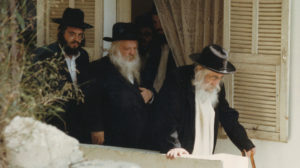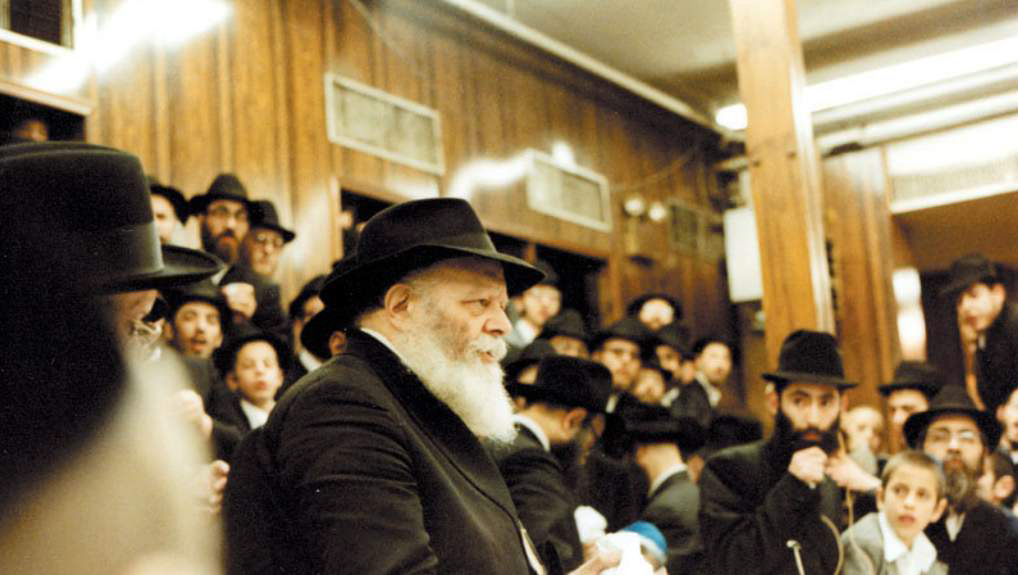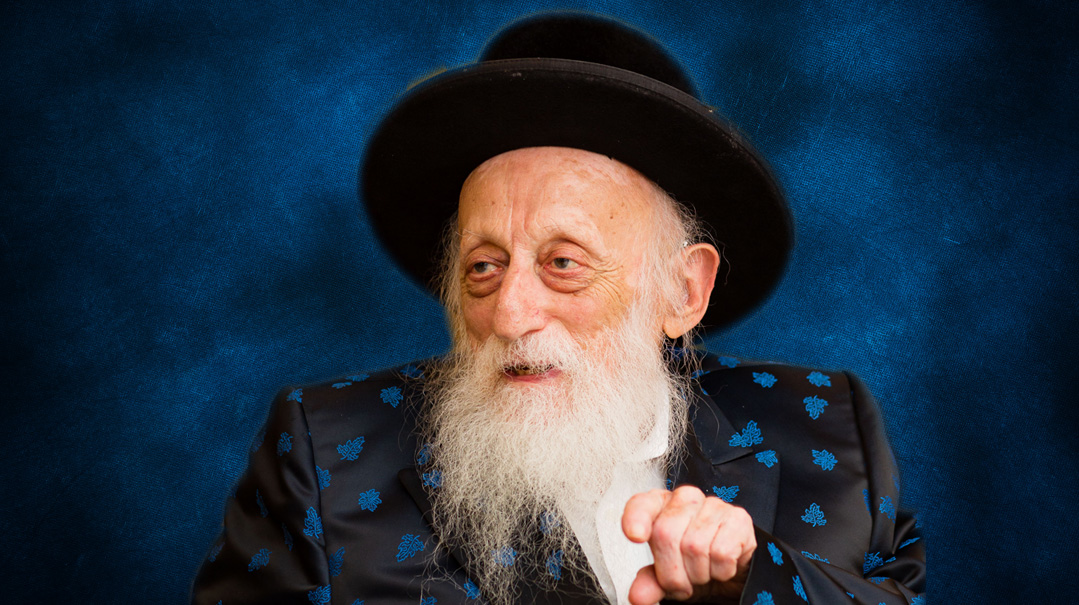Heavenly Arbitrage


Rav Avraham Zvi Beck ztz”l, for three decades the Gaavad of Melbourne, Australia, was niftar this past summer. With Rav Beck’s petirah, his gabbai, Mr. Mordechai Zalman Fixler, was freed from a vow of silence he had carried the previous six years.
To be sure, there had already been public hints of a mystery. On a visit to the United States during the late spring of 2012, Rav Beck made the rounds to various silver stores in Monsey, New York. He was searching for a Chanukah menorah of a particular vintage, a type that had been produced around the time of World War II and the liberation of Europe.
Shop owners were puzzled by Rav Beck’s request. First of all, the Gaavad had undertaken this quest personally, rather than appointing a shaliach; and second, when the mission ended in success, Rav Beck proclaimed his joy at finding a menorah identical to the one he had lit for the previous 56 Chanukahs.
So what had happened to that one, then?
End of Cheshvan-Kislev zeman 5772
Yungeleit were gathered in Melbourne’s Kollel Beis Yosef the day before Yarchei Kallah — the time set aside for summer bein hazmanim in the Southern Hemisphere, around Chanukah time. There was a certain intensity in the beis medrash. It was the last day of the zeman, and the kollel directors had gathered together with the avreichim to hear a speech delivered by the rosh kollel, Rav Yehuda HaKohein Katz.
Rav Katz, a son-in-law of the Gaavad, Rav Beck, was describing the unique responsibility borne by the Torah scholars seated before him, as they were learning in one of the only kollelim located south of the Equator.
“If we compare the land area of the Northern Hemisphere that is sustained by the Torah learning in America and Eretz Yisrael to our area in the south, we will find that proportionally, the learning here is supporting a much greater burden,” declared the rosh kollel. “How great is our merit! How weighty is our obligation!”
Rav Katz’s impassioned words lit a flame that fueled a ris’cha d’Oraisa among the assembled kollel members. As their voices rose and the walls of the beis medrash reverberated with the kol Torah, the students carried away on the fire of their enthusiasm did not notice the curious expressions on the faces of the kollel directors. Their eyes glinted with nachas as they basked in the sights and sounds of the avreichim’s toil. But their countenances were heavy.
At the closed-door meeting later that day came the grim news. Reb Chaim Hersh Fogel, the kollel director tasked with crunching the numbers, presented his findings to the rosh kollel and Reb Mordechai Zalman Fixler, gabbai to the Gaavad.
There were no surprises; for months, everyone present had already been gently turning away requests from yungeleit for their salaries, offering assurances that with Hashem’s help they would all be paid everything that they were owed. But those kind words had been based more on hope than on concrete prospects; the accounts were all empty.
Now things seemed to have reached the breaking point. The amounts in arrears had grown too large to continue, and no reprieve appeared on the horizon.
Rabbi Fogel looked up from the column of depressing figures. “We owe our yungeleit $90,000.”
A day later Rav Beck, the Gaavad, had been presented with the foreboding news by Rabbi Fogel a day earlier. He now discussed it with his gabbai, Reb Mordechai Zalman.
“What about a raffle?” Rav Beck suggested. “The large wooden menorah I asked be built for the beis medrash. That could be the prize.”
Mr. Fixler weighed the Gaavad’s words. Rav Beck was expert at captivating the hearts of potential donors and persuading them to give generously. But the gabbai latched on to a different idea, and seized the opportunity.
“I can think of a more enticing prize,” ventured Reb Mordechai Zalman. “Rebbi’s personal menorah. The one he has lit for so many years on Chanukah. That would be a fitting prize.”
The Gaavad absorbed these words and sat in silence. After a few moments, he replied that he would consider the matter.
His answer came only a couple of days later, as Mr. Fixler was driving him to a meeting.
“You say my menorah has value,” intoned Rav Beck. “Then you buy it.”
The words struck like a thunderclap.
Reb Mordechai Zalman, a loyal chassid, quickly agreed. There were logistics to be worked out — the gabbai did not have $90,000 on hand at that moment, so he decided to take a loan. With his frequent visits to wealthy members of the community, he had assembled a solid list of potential lenders, so he knew obtaining the liquid funds would not be difficult. He would need to procure the money within three weeks, so it would be ready to pay the yungeleit before the start of the next zeman, at the end of Yarchei Kallah.
The details of paying off this considerable debt were something Mr. Fixler would attend to later….
(Excerpted from Mishpacha, Issue 738)
Oops! We could not locate your form.












